Apple shares closed Tuesday at an all time high of $106.74, following the market's digesting of recent earnings reports, the well received launches of a series of new products and new details outlined in the company's 10-K report yesterday.
Apple's shares have only appreciated 6.7 percent over the past two years since reaching a high point in September 2012, despite a series of record quarters, double digit revenue growth driven by iPhone and Mac sales and content and services sold through iTunes, iCloud and the App Store.
Stock bloggers have already voiced concerns that Apple's stock might be too high after recent gains. Back in May, CNBC similarly "reported" concerns passed on by Jim Cramer of The Street. Cramer suggested investors pay heed to "Fibonacci analyst" Carolyn Boroden, who had performed a numerology chart reading and determined that Apple was in retrograde while IBM was ascendent.
"Sometimes the forecasts of these professional chart-watchers are so accurate that it's staggering," Cramer stated, explaining that Boroden 'follows a set of ratios believed to repeat themselves over and over again in nature,' as part of a scientific-sounding practice named after Leonardo Fibonacci, a mathematician from the Middle Ages.
Despite CNBC repeating "Fibonacci" a magical seven times within its article, Apple's shares since the report was published have defied the natural laws of geometric broccoli and given the "staggering" accuracy of Boroden's craft a big black eye.
Since May 20, Apple's share have appreciated 23.57 percent and have paid out a one-half percent dividend. IBM, in contrast, has consistently trailed Apple's upward climb throughout the year and is currently down 12.55 percent.
Apple gearing for future growth with hirings and construction
The company is gearing up for additional growth in 2015, having reported an all time high $1.7 billion investment in research & development in the last quarter, contributing toward $6 billion in R&D spending for fiscal 2014.
It also outlined the opening of 21 new retail stores in the fiscal year— short of the 30 it had intended to open— along with plans to open 25 more in 2015, now that its retail operations have a leader in the form of Angela Ahrendts, who joined the company in May.
In addition to the 46,200 full time retail workers Apple now employs in its 437 stores, it also now has 46,400 additional, non-retail full time employees and 4,400 other full time temporary workers and contractors.
Apple's explosion of hiring has stretched the capacity of the company's Infinite Loop headquarters in Cupertino California, necessitating the nearby Campus 2 expansion (below) that will make room for more than 12,000 workers. Apple also operates office and call center facilities in Elk Grove, California; Austin, Texas and Cork, Ireland, as well as owning GT Advanced Technology's now distressed manufacturing center in Mesa, Arizona.
The company also operates iCloud data centers in Newark, California; Maiden, North Carolina; Prineville, Oregon and Reno, Nevada, as well as undisclosed properties outside the U.S. which the company's 10K describes only as "additional facilities for various purposes."
Apple's vast cash, investments and taxes
Apple now has $44.5 billion invested in U.S. government securities and $54.6 billion invested in corporate securities, contributing towards its $147.1 billion in total cash and investments.
The company also repurchased $17 billion of its stock in the final quarter of fiscal 2014, sending total buybacks for the fiscal year above $45 billion.
In fiscal 2014, Apple accounted for $13.9 billion in taxes, including $8.6 billion paid in federal U.S. taxes and $855 million in state tax and with $2.1 billion in foreign taxes. That gave the company an effective tax rate of 26.1 percent and made it a top U.S. taxpayer. The company also paid out $11 billion in dividends, triggering an additional windfall of U.S and state income taxes from the company's recipient shareholders.
In comparison, Google's most recent 10K filings report that it paid an effective tax rate of just 15.7 percent in calendar 2013; Microsoft reported paying an effective tax rate "approximately" 19 percent; while Samsung pays taxes in South Korea that are in the low teens (12-16 percent), a rate around half that of Apple.
 Daniel Eran Dilger
Daniel Eran Dilger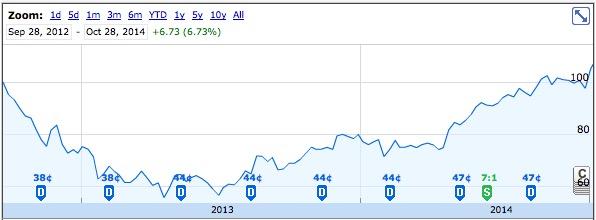
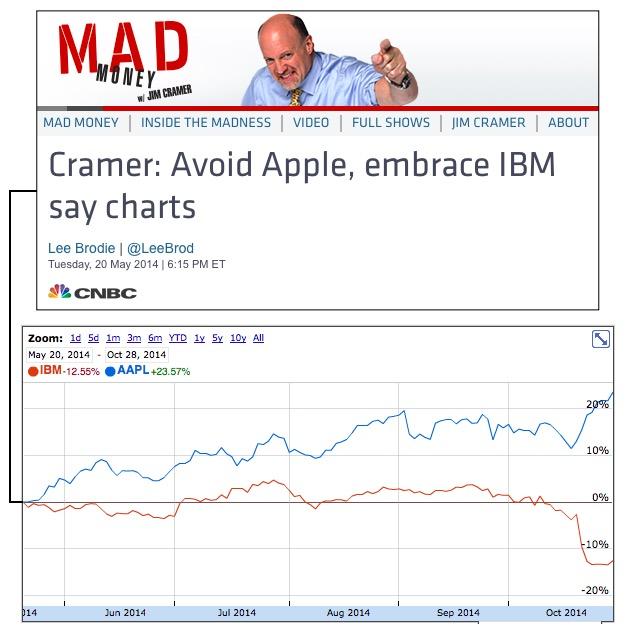

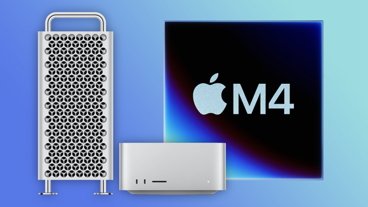
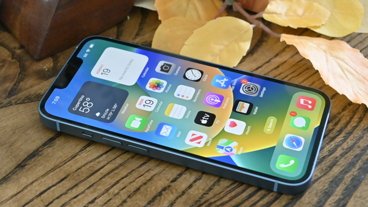
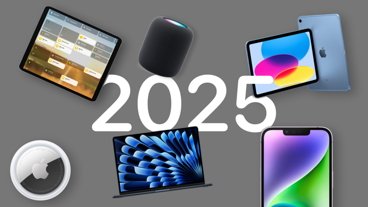
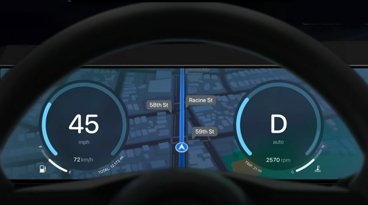

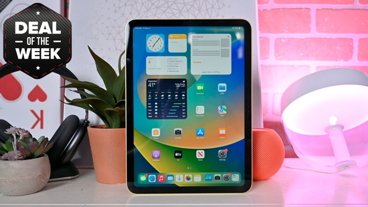
-m.jpg)





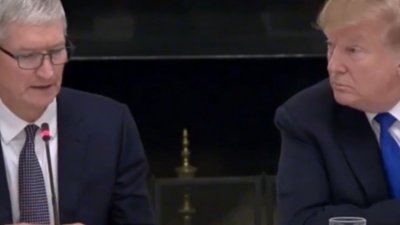
 Wesley Hilliard
Wesley Hilliard
 Malcolm Owen
Malcolm Owen

 William Gallagher
William Gallagher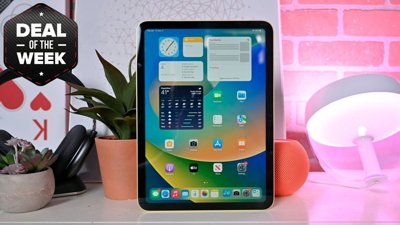
 Christine McKee
Christine McKee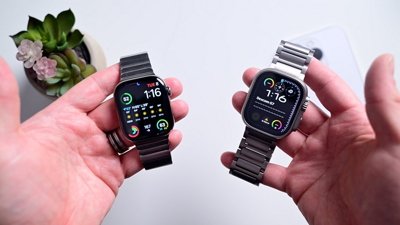
 Andrew O'Hara
Andrew O'Hara
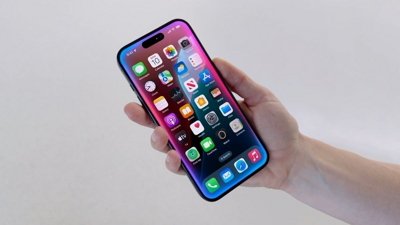










45 Comments
1) excellent article 2) damn this 1600 horizontal pixel screen; now I need to scroll to see where the stock is today
"Despite CNBC repeating "Fibonacci" a magical seven times within its article, Apple's shares since the report was published have defied the natural laws of geometric broccoli and given the "staggering" accuracy of Boroden's craft a big black eye." ----- Ahhh....a good chuckle before bed. I almost bought into some numerical analyst's BS last year but then decided growing earnings were the more powerful force. I purchased some shares at what I thought was a painfully high price (even with the recent drop before the purchase) and now I'm very happy that I listened to my more logical gut.
Considering that Apple has bought back and retired something like 10% of their stock in the past year, the remaining shares should be worth 10% more. So I don't think Apple will actually exceed its basis-adjusted past high until it reaches about $111 a share.
[quote name="NormM" url="/t/183110/apple-stock-closes-at-all-time-high-as-company-aims-for-future-growth/0_100#post_2629386"]Considering that Apple has bought back and retired something like 10% of their stock in the past year, the remaining shares should be worth 10% more. So I don't think Apple will actually exceed its basis-adjusted past high until it reaches about $111 a share.[/quote] Yes. Their market cap is about $624 billion now. I seem to recall it being above $650 billion back in 2012.
I am pretty sure that Apples "effective tax rate" is a fudge. It's probably deferred tax which may not be paid.